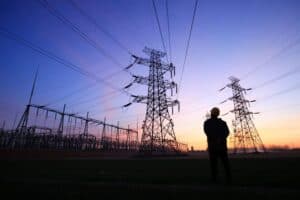Political and economic analyst Daniel Silke said everyone was feeling the squeeze.

Keeping up with the Joneses is a thing of the past as the middle class struggle to keep up with endless price increases in a crippled economy.
From rising electricity tariffs to petrol, living costs and medical aid price hikes, there is little which has not gone up, except for disposal income.
Pauline Moikanyane from Kagiso, who works as a cook at a nursery school in Krugersdorp, said the lockdown has been hard on her household. She has been trying to cut costs by eating less meat and more vegetables, but was still feeling the crunch.
“My eldest son was recently retrenched, now I have to help him with money, too,” she said.
As a working mother, she does not have the energy to take on an extra job over weekends.
Tinyiko Makuleka, a domestic worker from Soshanguve, said the food increases have hurt her pocket.
“Especially fish oil has become expensive. I only buy it on special now. Even pap and bread is getting expensive,” Makuleka said.
The mother of three said because her husband didn’t have a full-time job she sells goods over the weekend to make extra money.
“My taxi fees a day are R90 and it’s going to cost more soon,” Makuleka added.
The Marais family from the West Rand said the recent fuel increase would have a huge impact on their budget.
Antwanette Marais’ husband works as a medical sales representative and spent about R4 000 on petrol a month before the recent increase.
“The first thing you cut on is the luxuries and you go for the basics that will last longer,” Marais said.
She said they try and stretch the cents by eating more chicken and opting for pap, instead of potatoes.
“We make an extra income by selling shoes at markets over weekends. But it has been much quieter since lockdown.”
Cherazade Nortje, a mother of three from Pretoria North, said she went grocery shopping two weeks ago and was amazed by how the prizes have gone up.
“It’s so crazy, instead of spending what I normally budget for, I spent double, and it’s not even on luxuries. She said she noticed the meat prices have gone up to the point “where we paying more for less”.
Nortje said after the fuel increase, she would have to pay more towards fuel and cut costs elsewhere to make ends meet.
“Luckily the children are only going to school every second day but when they go back every single day, it will affect us even more,” she said.
Nortje has started selling beauty products, homemade biscuits and samosas to keep up with all their expenses.
Political and economic analyst Daniel Silke said everyone was feeling the squeeze.
“There is an increasing feeling of insecurity in many South African households, given the high increases and utility charges and operating costs,” Silke said.
Families now have to reprioritise their spending and weigh up spending decisions on services that they were used to, he said.
“You will find those who subscribed to the likes of DStv will now be downgrading their packages and shoppers will be going for specials and buying in-house brands.”
He said the increases all have an effect on retail spending patterns within the country.
“It’s very tough from a budgeting point of few for the average family. Particularly the electricity increases cut deep because you can’t be without that.”
Economist Mike Schussler said the middle class was under severe strain because they did not get the salary increases hoped for.
“They are overtaxed and feel the pressure from all sorts of taxes, whether its rates and taxes, school fees, food increases.”
Schussler said South Africans have become 12% richer since 1994, however, the nation was now far poorer than in 2010.






